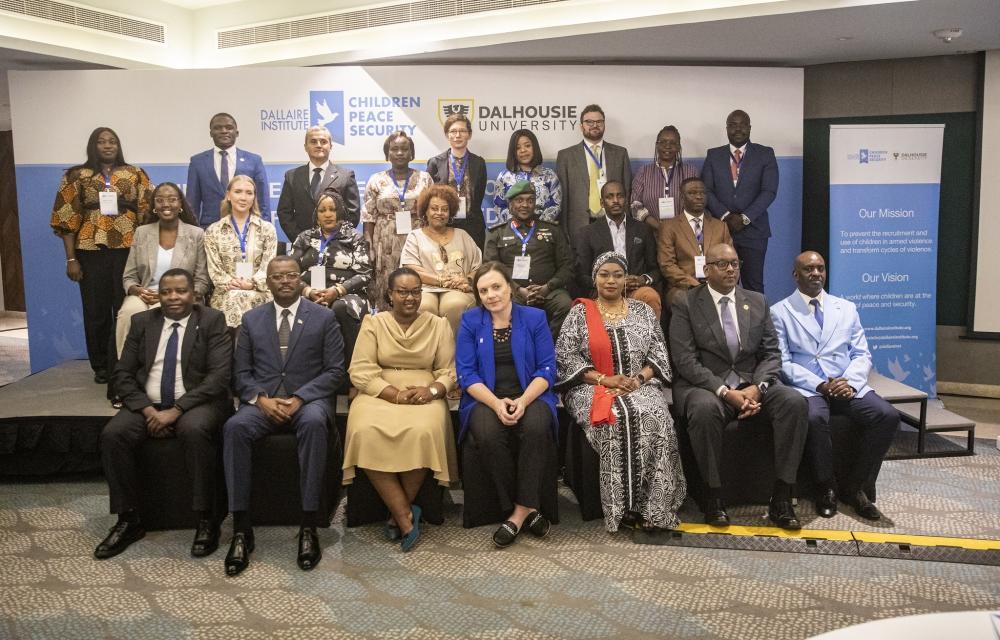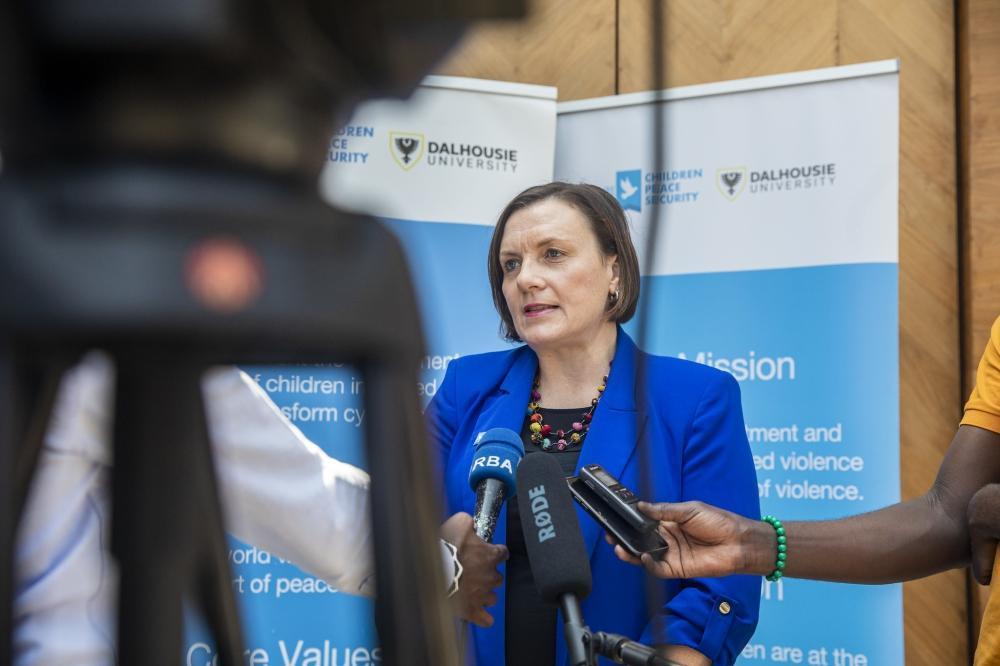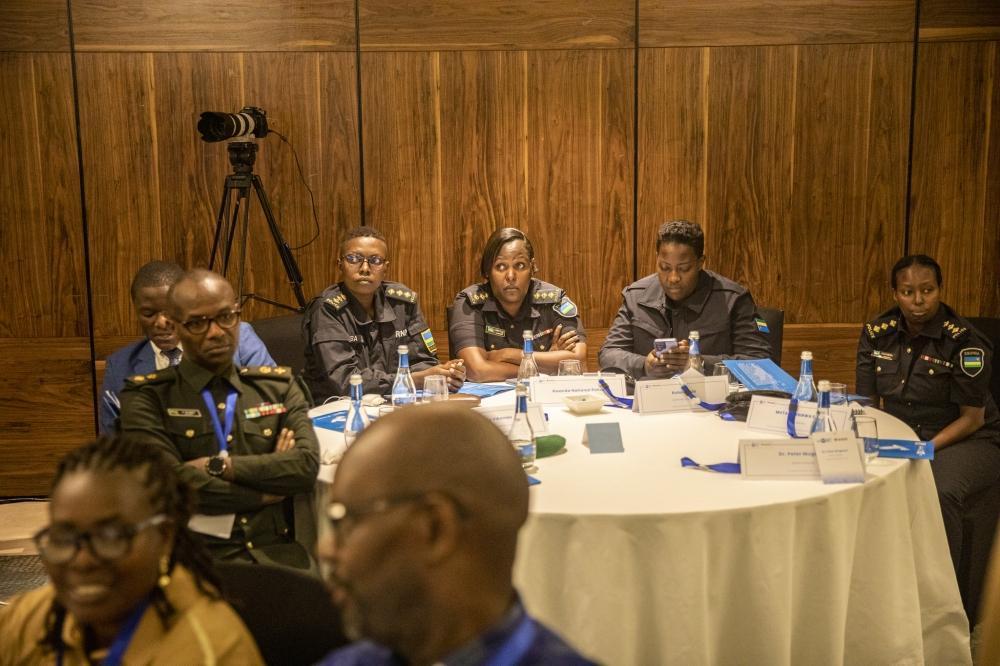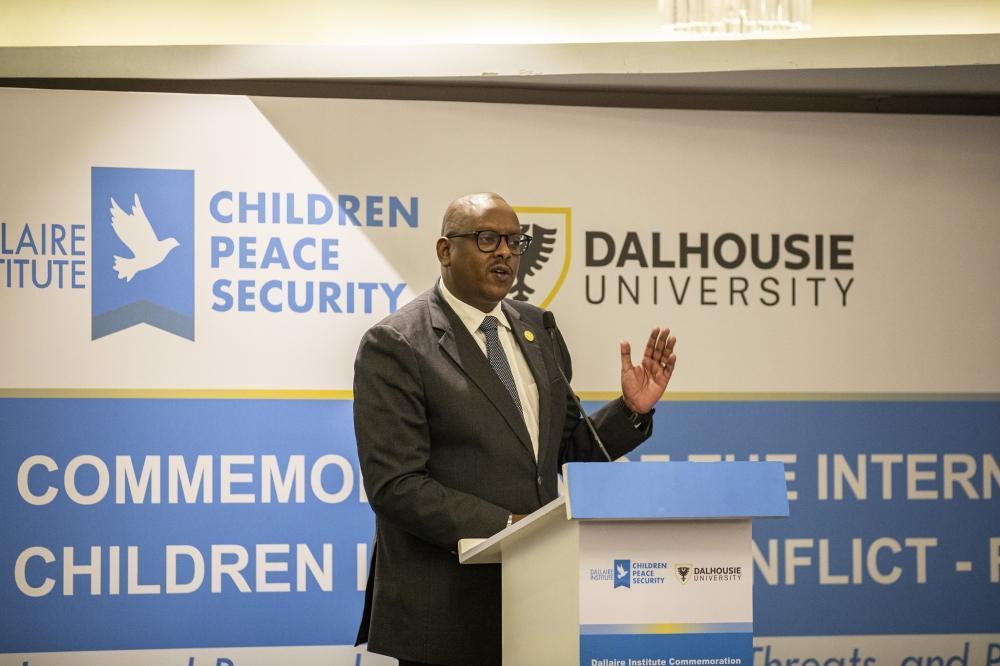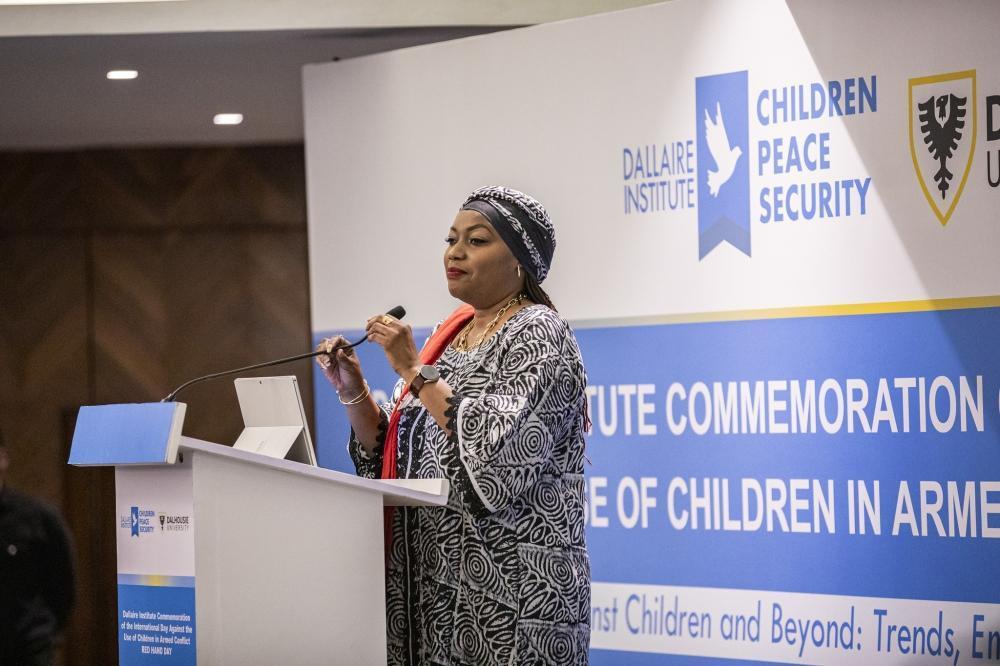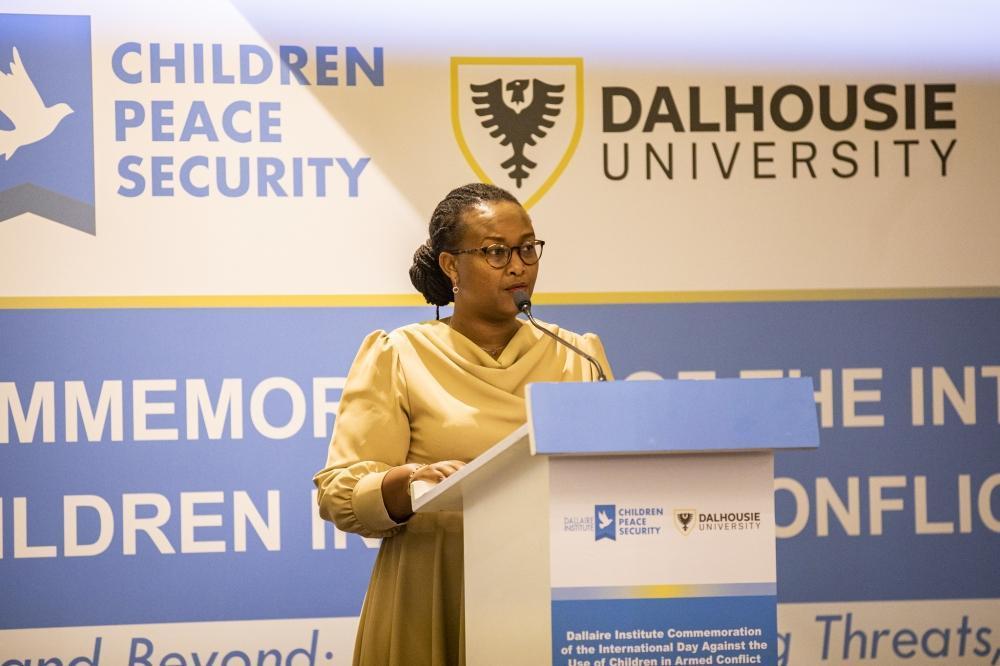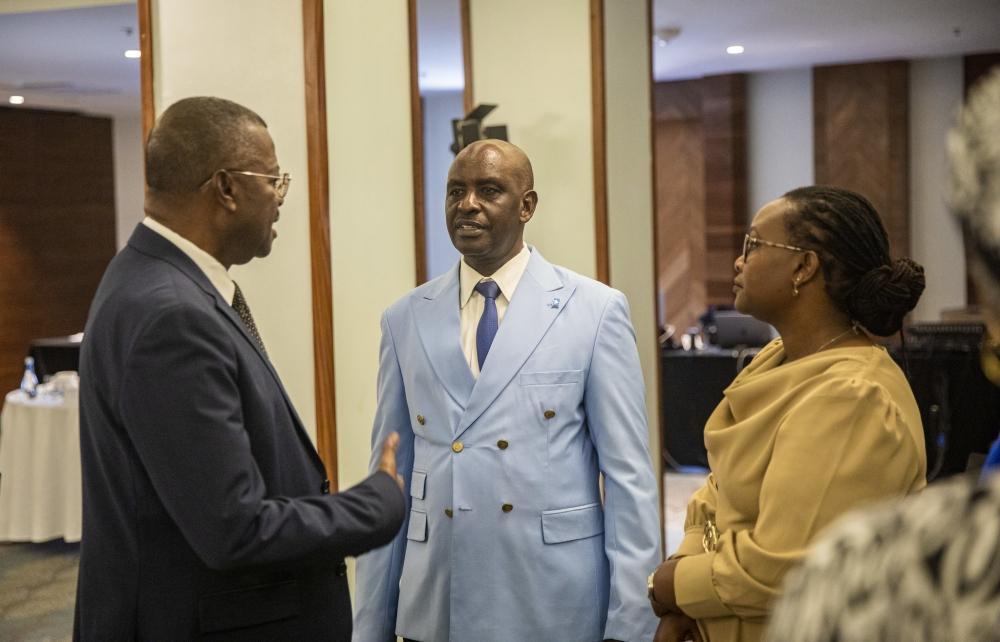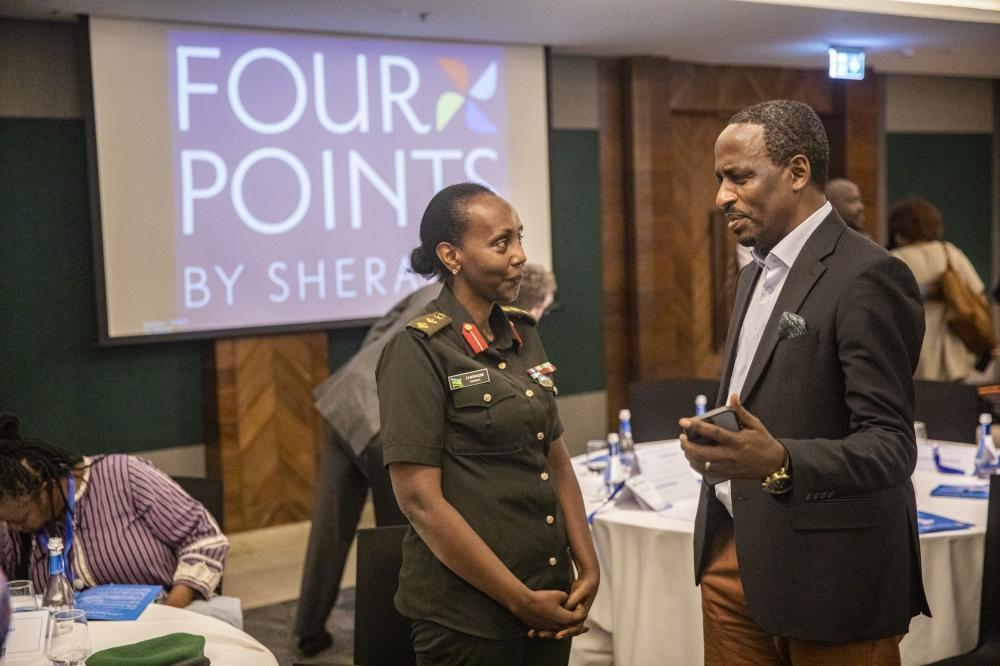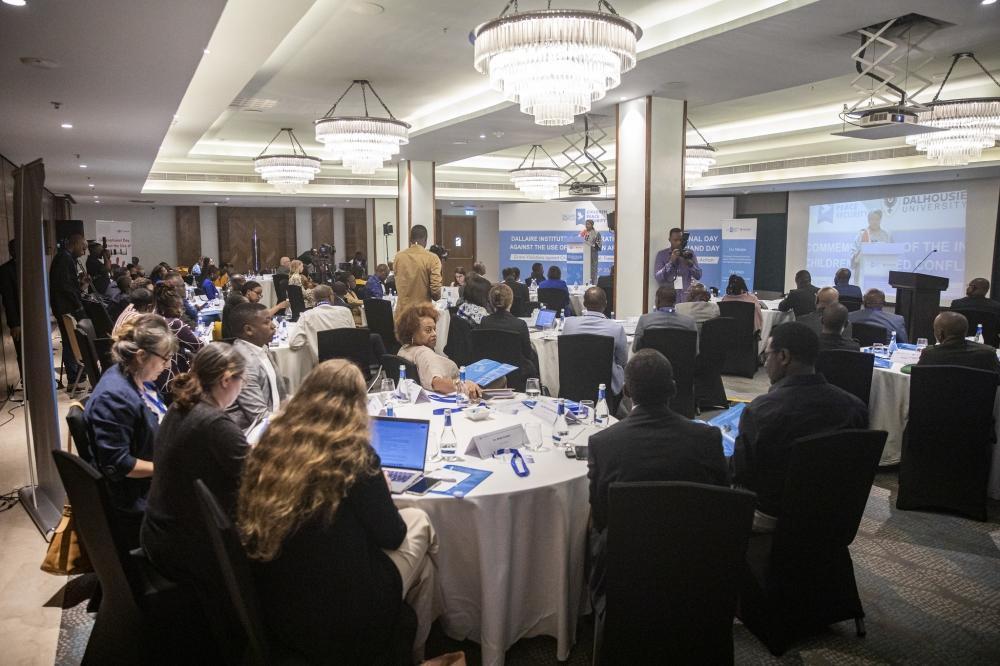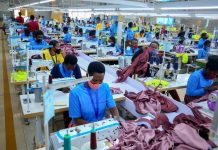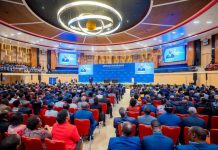Africa-Press – Rwanda. Experts called for immediate action to address the violations against children in armed conflicts, emphasising the need for effective policy implementation and enhanced cross-border collaboration.
The call was made at a conference organised by the Dallaire Institute for Children, Peace, and Security’s African Centre of Excellence, which is being held in Kigali, Rwanda, from February 19 to 20.
The event focuses on critical issues affecting children in armed conflict and armed violence.
This conference, marking Red Hand Day 2025, aims to raise awareness about the urgent need to prevent violations against children. It features a series of panel discussions designed to explore new approaches and solutions for addressing these grave issues.
Dr Shelly Whitman, Executive Director of the Dallaire Institute, opened the discussions by highlighting the interconnected threats faced by children in conflict zones.
Dr Shelly Whitman, Executive Director of the Dallaire Institute, speaks to journalists at the event
“We will focus on issues such as child trafficking, the recruitment and use of children in armed conflicts, sexual violence, and detention,” she said.
The event focuses on critical issues affecting children in armed conflict and armed violence
She emphasised that trafficking, often overlooked in conflict contexts, is becoming increasingly recognised as part of broader conflict dynamics, severely impacting children’s safety and well-being.
Whitman also pointed to the need for robust protocols to protect children, especially those detained in conflict situations, underlining the long-term psychological consequences of such detentions.
“There are specific protocols that must be observed when treating children detained in conflict zones,” she explained.
Ambassador Frederick Gateretse Ngoga from the African Union’s Office of the Commissioner for Political Affairs, Peace, and Security, also addressed the conference, noting the widespread involvement of children in armed conflicts across Africa.
Ambassador Frederick Gateretse Ngoga from the African Union’s Office of the Commissioner for Political Affairs, Peace, and Security
“There are currently 17 conflict situations in Africa that the European Security Council is engaged with, and in all of them, children are involved in armed conflicts, some as young as 12,” Ngoga said.
He recommended that ending conflicts is the most effective way to protect children, adding that governments, regional organisations, and the international community must intensify efforts in conflict prevention and peacebuilding.
Ngoga further stressed the importance of disarmament, demobilisation, and reintegration (DDR) programmes, calling for more resources to support these critical efforts.
He also highlighted the need for expanded psychological support and trauma-informed care for children affected by conflict.
Ambassador Jainaba Jagne, Co-chair of the African Platform on Children Affected by Armed Conflict, emphasised the growing advocacy efforts for child protection in conflict zones.
Ambassador Jainaba Jagne, Co-chair of the African Platform on Children Affected by Armed Conflict speaks at the event in Kigali
“The number of conflicts in Africa is rising, but so is the number of advocates working to protect children affected by armed conflict,” she said, pointing to ongoing efforts by the African Union to institutionalise frameworks like the Banjul Process.
Jagne stressed that effective advocacy is key to ensuring the successful implementation of policies that prioritise the needs of children.
Mireille Batamuriza, Rwanda’s Permanent Secretary from the Ministry of Gender and Family Promotion, noted Rwanda’s significant contributions to child protection, noting that the country has trained over 2,500 security personnel, military, police, and peacekeepers in child protection measures.
Mireille Batamuriza, Rwanda’s Permanent Secretary from the Ministry of Gender and Family Promotion, addresses delegates
She also referenced the alarming findings of the 2024 UN Secretary-General’s report, which confirmed more than 27,000 grave violations against children in 2023 alone.
“Recruitment and use of children accounted for 35% of these violations. Child trafficking, detention, and sexual violence exacerbate the crisis, with trafficked children—60% of whom are girls—suffering from sexual exploitation and forced recruitment. Meanwhile, 85% of detained children are boys, enduring torture and abuse,” she said.
To bridge the gap between policy and practice, Batamuriza called for three key actions: gender-sensitive strategies, increased engagement with the security sector, and stronger youth and community leadership.
She also emphasised the importance of cross-border collaboration to combat trafficking networks and protect vulnerable children.
Delegates interact at the conference in Kigali
For More News And Analysis About Rwanda Follow Africa-Press

